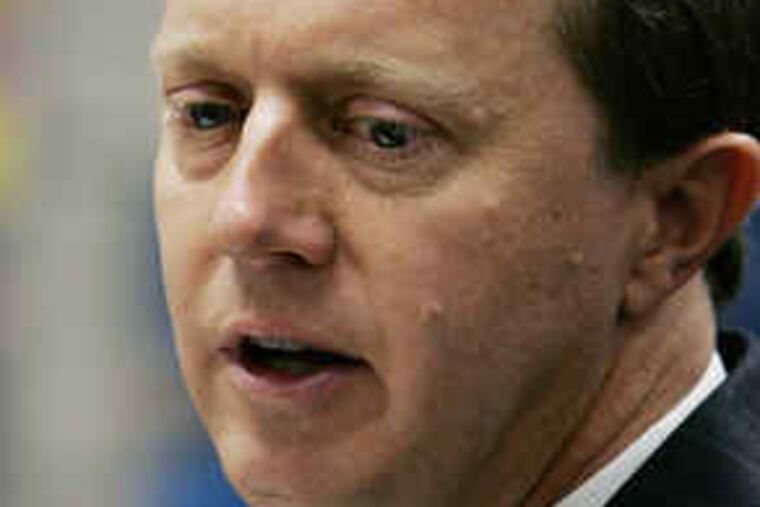Third District primaries mostly drama-free
South Jersey's Third District will feature one of the nation's most volatile U.S. House races this fall, but so far the primary election season hasn't offered much drama.

South Jersey's Third District will feature one of the nation's most volatile U.S. House races this fall, but so far the primary election season hasn't offered much drama.
The leading candidates are playing it safe, declining to debate underfunded upstarts in their respective primaries. And it is not likely they'll spend much on advertising, preferring to hold onto their money for what promises to be an expensive and hard-fought general election.
Democratic U.S. Rep. John Adler, the freshman who represents the district, which spans Burlington and Ocean Counties and includes Cherry Hill in Camden County, has been on the trail, but mainly sticking to his town meetings and Congress-related events. He won't be debating Lacey Township Democratic Committee Chairman Barry Bendar before the June 8 primary.
Republican Jon Runyan, a newcomer to politics, likewise has declined to debate his opponent, Justin Murphy, who ran in a GOP primary for this seat two years ago and came in a close third. Runyan has been on the trail as well, meeting with largely Republican groups.
"This kind of Rose Garden strategy tends to be the purview of powerful, entrenched incumbents," said Montclair State University political scientist Brigid Harrison. "It tends not to be the purview of people who have not run for public office before."
The failure to confront the opposition can be risky for a newcomer because "voters are curious about the issues. They want to know if the candidate can string a couple of sentences together," she said.
Runyan has some name recognition on the Philadelphia side of the district because he was an offensive lineman for the Eagles. He retired from pro football this year as a San Diego Charger.
He has turned down invitations to debate before a tea party group, a veterans' organization, and a grassroots group in Willingboro. That group, Grassroots4Change, also wanted a Democratic debate, but Adler is not likely to respond to the request.
Its leader, David Hopkins, said he was going ahead with the debate anyway, and would put an empty chair where the party-endorsed candidates should be sitting.
"I think it's very unfortunate. People would like to see what Runyan is about, and Adler will have to explain his vote against Obama's health care plan," Hopkins said.
Bryan Adams, head of Veterans for Education, said he also was disappointed with Runyan's failure to debate.
"If you're going to be in Congress, you need to be able to effectively debate," said Adams.
Candidates in 2008 debated before his group, hoping to appeal to the district's many military personnel and retired veterans.
Debates give underfunded candidates a chance to speak directly to the public and get free publicity from the media coverage. Neither Murphy nor Bendar seems to have much money to get a message out.
Although Murphy has secured endorsements from conservative groups, he has only raised $6,300 to Runyan's $150,000, according to the latest federal campaign finance reports.
The Democratic money race is even more lopsided. Adler reported raising $2 million and Bendar reported having nothing in his campaign account.
Most of the action in this race has been like a preseason warm-up to the general election.
Adler and Runyan have taken a couple of shots at each other. Runyan accused Adler of having been a liberal when he was in the state Senate. Adler's campaign has accused Runyan of hiding, speaking only to friendly groups.
Both sides, though, say they want to have debates in the fall race, just not in the primaries.